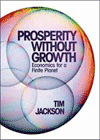Christianity and Sustainable Consumer Behaviours
Overall aims
The aim of the research was to investigate whether and how participation in Christian churches influences consumer behaviours (specifically, ecologically conscious, socially conscious and frugal consumer behaviours), thereby seeking a better understanding of the actual and potential contribution of Christianity to sustainable consumption.
Context
The potential of religions for countering consumerism and fostering more sustainable consumption practices has often been invoked. Religious traditions are potentially rich in values, beliefs, narratives, symbols and practices that emphasise simple living, social justice, and care for the earth. Religions can also be understood as communities and networks that influence the everyday practices of their adherents. In the case of Christianity in the UK, recent years have seen the development of a range of community-focused sustainability initiatives, such as Eco-congregation (aimed at greening congregations and the lives of their members), the Catholic Church’s “Live Simply” program, fair trade stalls in churches, the “Breathe” network for simpler living and more.
At the same time, religion is profoundly affected by the rise of consumer culture, and is itself implicated in socio-historical developments that have led to overconsumption; thus it may be substantially constrained in its embodiment of alternatives to consumerism. For example, it may be that consumer culture schools the faithful to relate to their religion as consumers and to treat religious beliefs as commodities with less potency for the practice of everyday life.
Research questions and methods
Reviews of the literature, two focus group studies with churchgoers, and a quantitative survey of churchgoers and the general public were conducted in order to address two key research questions. First, are churchgoers distinct from non-churchgoers with respect to their ecologically conscious, socially conscious and frugal consumer behaviours? And second, how does Christianity affect the consumer behaviours of churchgoers?
Results
The research found that, in general, churchgoing has a positive influence on the three types of behaviour, but that this influence is weak, particularly in the case of ecologically and socially conscious consumer behaviours. Like ecologically conscious consumer behaviour, socially conscious consumer behaviour was found to be an expression of altruism that is compatible with rising consumption, whereas frugality in contrast is primarily about income constraints and low personal materialistic values. As such, frugality has not been widely adopted as a fully developed moral challenge to consumerism. Christian beliefs concerning social justice, environmental stewardship, and wealth and possessions have potentially radical implications for consumer behaviours. Yet such beliefs become somewhat defused through their subjugation to other priorities (e.g. evangelism), fatalism about the possibilities of an alternative future, an emphasis on individual rather than collective action, and the spiritualisation of religious teachings (e.g. Christians should be spiritually detached from their material possessions, but need not necessarily give them up).
Implications
The findings imply that churches’ potential contributions to sustainable living remain largely unrealised. Collective efforts that intentionally integrate Christian values, narratives, symbols and practices in ways that counter the problems of consumerism and provide alternatives at the local level may provide a way forward. Moreover, if sustainable consumption requires consuming less, there is a need for the development of public and community discourses across society about the fullness of frugal living.
Outputs
Pepper, M, T Jackson and D Uzzell 2009. An examination of the values that drive socially conscious and frugal consumer behaviours. International Journal of Consumer Studies 33(2): 126-136.
Jackson, T and M Pepper 2010. Consumerism as theodicy: religious and secular meaning functions in modern society. In L Thomas (Ed) Religion, Consumerism and Sustainability: Paradise Lost? 17-36. Basingstoke and New York: Palgrave - Macmillan.
Pepper, M, T Jackson and D Uzzell 2010. A study of multidimensional religion constructs and values in the United Kingdom. Journal for the Scientific Study of Religion 49 (1): 127-146.
Pepper, M, T Jackson and D Uzzell 2011. An examination of Christianity and socially conscious and frugal consumer behaviours. Environment and Behavior 43(2): 274-290.
Pepper, M, T Jackson and D Uzzell 2006. Christianity and sustainable consumption: an investigation of religiosity and consumer behaviours. Paper presented at BSA Sociology of Religion Study Group Conference on ‘Religion and the Individual’, University of Manchester, 3rd – 5th April 2006.
Pepper, M, T Jackson and D Uzzell 2006. Christianity and consumerism: views from the pews. Presented at ISET International Conference on ‘Countering Consumerism: Religious and Secular Responses’, London Metropolitan University, 20th – 22nd April 2006.
Pepper, M, T Jackson and D Uzzell 2006. Environmentalism in churches: attitudes and behaviours of UK Christians. Presented at ‘Critical Perspectives on Religion and the Environment’ Conference, Woodbrooke Study Centre, Birmingham, 18th – 19th September 2006.
Pepper, M 2007. Christianity and sustainable consumption: asocial psychological investigation. PhD thesis, Guildford: University of Surrey.
Douglas, S and M Pepper 2009. Is ‘green’ religion the answer to the ecological crisis? A reflection in the context of the English-speaking West. In B Mukherjee, R Ray and S K Basu (Eds) Environment: Gathering Crises. New Delhi: Akansha.





